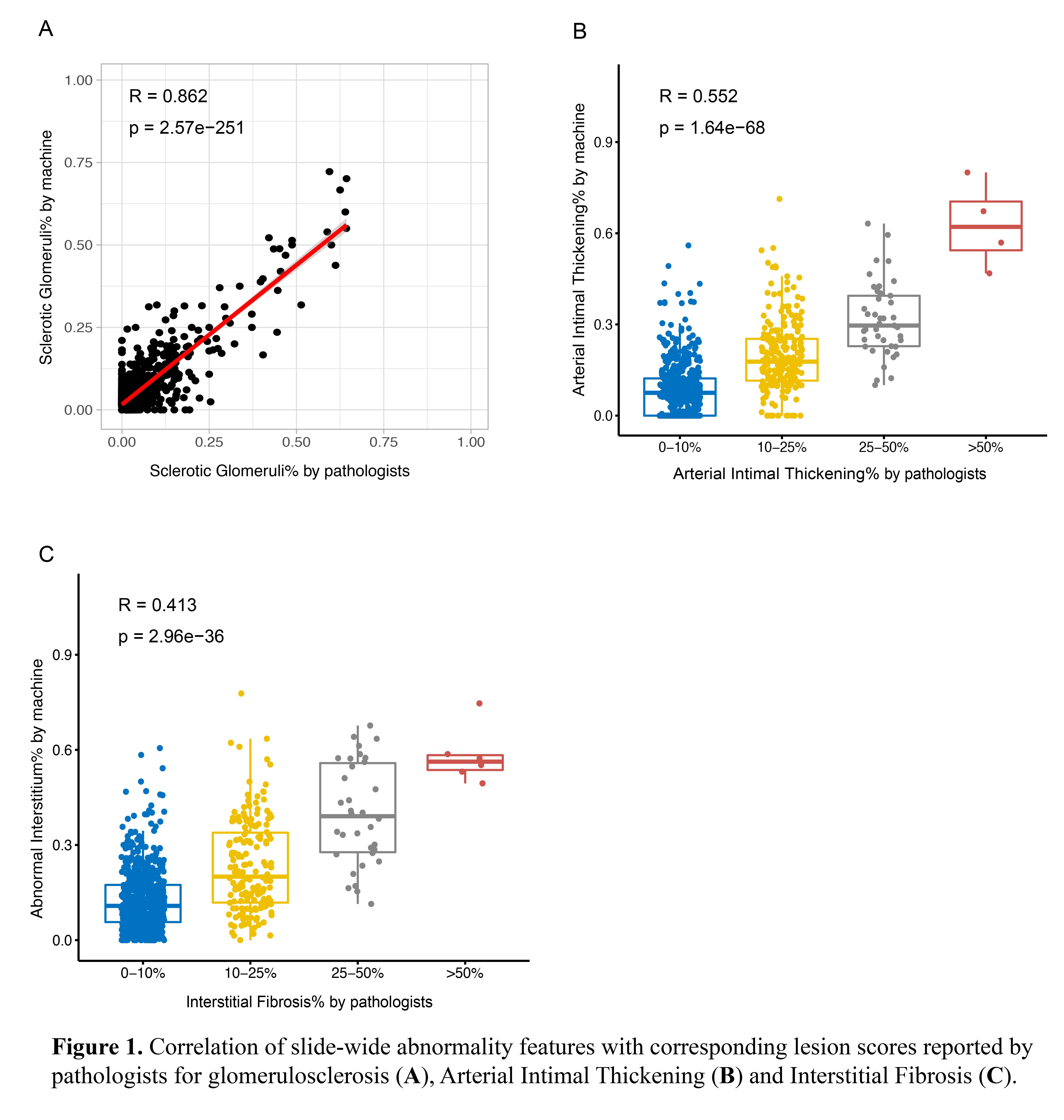Deep-Learning Based Pathological Assessment of Frozen Procurement Kidney Biopsies
1Icahn School of Medicine at Mount Sinai, New York, NY, 2Yale University School of Medicine, New York, NY
Meeting: 2022 American Transplant Congress
Abstract number: 392
Keywords: Biopsy, Kidney transplantation, Organ Selection/Allocation
Topic: Clinical Science » Kidney » 32 - Kidney Deceased Donor Selection
Session Information
Session Name: Kidney Deceased Donor Selection II
Session Type: Rapid Fire Oral Abstract
Date: Tuesday, June 7, 2022
Session Time: 3:30pm-5:00pm
 Presentation Time: 3:40pm-3:50pm
Presentation Time: 3:40pm-3:50pm
Location: Hynes Ballroom C
*Purpose: Organ shortage in kidney transplantation is a major issue for ESKD individuals on the waiting list. Sclerotic glomeruli or interstitial fibrosis on procurement donor biopsies obtained before transplantation are commonly used to guide organ allocation of marginal donors. However, issues from misinterpretation of frozen sections and increased inter-observer variability among on-call pathologists may lead to inappropriate discard decisions.
*Methods: We constructed deep-learning based models to recognize normal or abnormal kidney tissue compartments for glomeruli, arteries, and tubules in H&E stained frozen procurement kidney biopsy slides from Organ Procurement and Transplantation Network (OPTN), New York region. The models were trained on 11,473 image tiles and were independently tested on 3,986 image tiles from 100 H&E slides. By applying pre-trained models to whole slide images, we further developed a pipeline summarizing slide-wide abnormal features regarding glomerulosclerosis, arterial intimal thickening, and widened interstitium. The pipeline was applied to 846 H&E slides from procurement biopsies performed between 2019-2020 to estimate slide-wide features and then correlate with their corresponding lesion scores from pathological reports.
*Results: Our compartment detection model accurately differentiated 96% and 91% of normal and sclerotic glomeruli respectively, explicitly identified 94% of arteries as well as arterial intimal thickening layers, and correctly recognized 90% of tubules regardless of freezing artifacts. Whole slide investigation of 846 slides extracted three slide-wide abnormality features: Sclerotic Glomeruli%, Arterial Intimal Thickening%, and Abnormal Interstitium%. All three features demonstrated strong correlations with corresponding lesion scores (Figure 1) in either continuous values (Sclerotic Glomeruli%: R=0.862, p=2.57e-251) or categorical rank forms (Arterial Intimal Thickening%: R=0.552, p=1.64e-68; Abnormal Interstitium%: R=0.413, p=2.96e-36).
*Conclusions: This deep-learning based approach provides automatic and reliable pathological assessment of frozen procurement kidney biopsies in both rapid and objective manner, which suggests a potential advantage in real life organ allocation practice.
To cite this abstract in AMA style:
Yi Z, Xi C, Menon M, Cravedi P, Murphy B, Ward S, Salem F, Zhang W. Deep-Learning Based Pathological Assessment of Frozen Procurement Kidney Biopsies [abstract]. Am J Transplant. 2022; 22 (suppl 3). https://atcmeetingabstracts.com/abstract/deep-learning-based-pathological-assessment-of-frozen-procurement-kidney-biopsies/. Accessed February 26, 2026.« Back to 2022 American Transplant Congress

